Alumni Interview with Emily Teixeira
Here's what it's like to go on an International Medical Aid (IMA) program!

Emily Lycurgo Teixeira, a first-generation college student at Tufts University from Cape Cod, MA, studies Spanish Cultural Studies and Biology. With roots in Brazil, she is passionate about representation and aims to become an obstetrician focused on holistic, rural care for underserved communities
What inspired you to travel abroad?
I have always been fascinated by learning different birthing customs across South America, with this interest originating in my own Brazilian culture. As I progressed in my studies as a first-generation American and first-generation college student, I realized I could become a part of systemic change by committing to learning and advocating for multicultural representation in medicine, where I hope to give back to my community one day as an obstetrician where I can mirror their appearance and speak their language. It is the responsibility of the new generations of Latin Americans who have been given the world from their families to listen to their elders to not only preserve these traditions and practices but also to expand on them and create a harmony that is lost in American medical systems were holistic care and modern medicine is usually put at odds and not being put to work together. I aspire to deepen my understanding of cultural practices in Latin American healthcare so I can support those who feel unseen and underrepresented in their most vulnerable moments. This is why I decided to go abroad to learn about these practices firsthand!
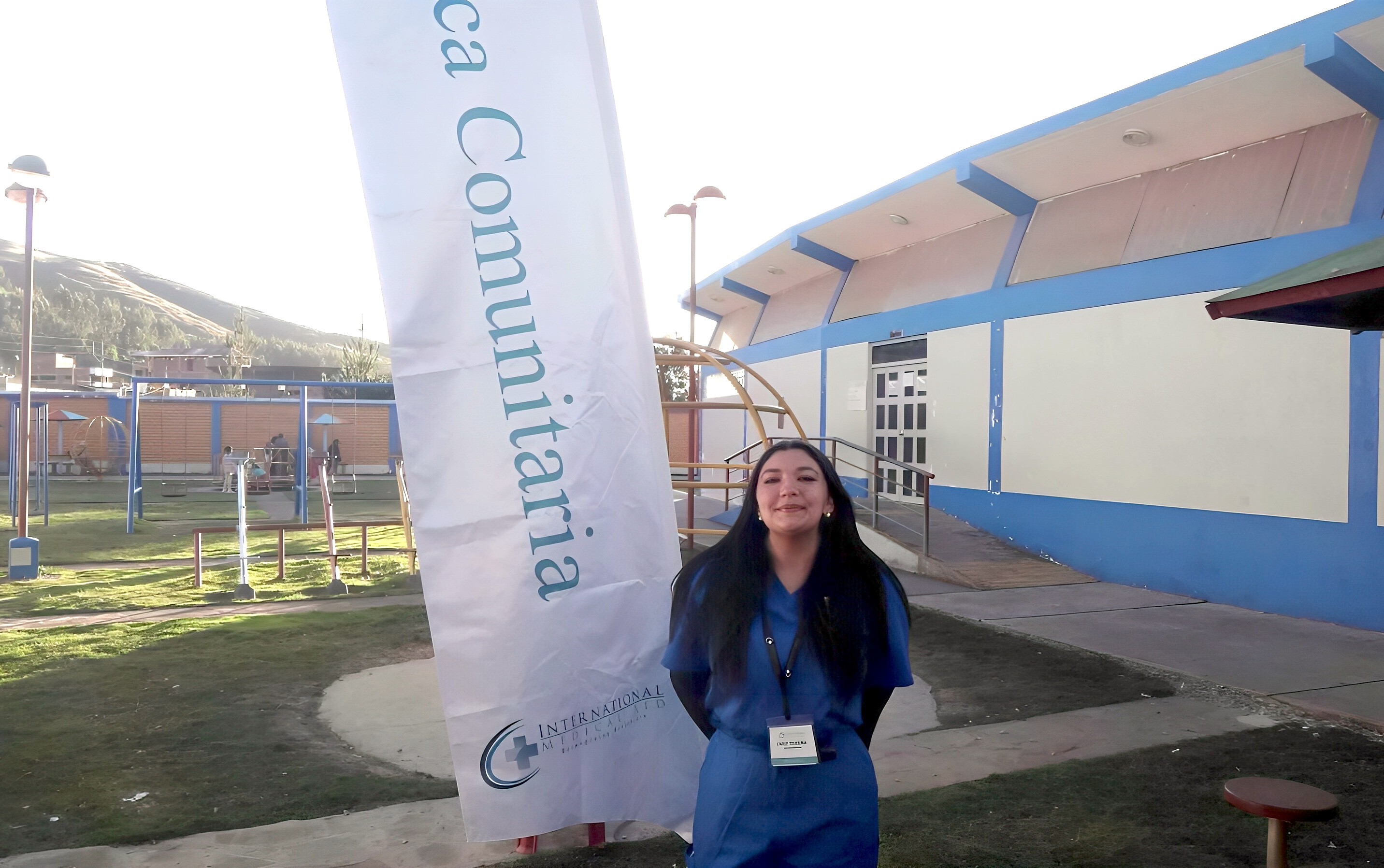
Emily at IMA’s Cusco location.
Why did you choose the program Global Health & Pre-Medicine Internships Abroad by IMA?
When looking for abroad programs, I very carefully researched each program to ensure that I was not applying to any "white savior" or "voluntourism" programs. I truly valued long-term relationship programs with employees from the actual area, and the mission to help students learn but also create opportunities for the communities and lands that hosted us, and that is exactly the mission of International Medical Aid.
What was your favorite part about Peru?
My favorite part about Peru was the people! Our mentors, doctors, and staff were so beyond kind! Everyone gave us their favorite recommendations and had the most incredible energy I hope to mirror as a physician one day! From our chef staff to our tour guides, to our drivers and physicians, the beautiful Cusco energy made it so we were welcome from the moment we arrived.
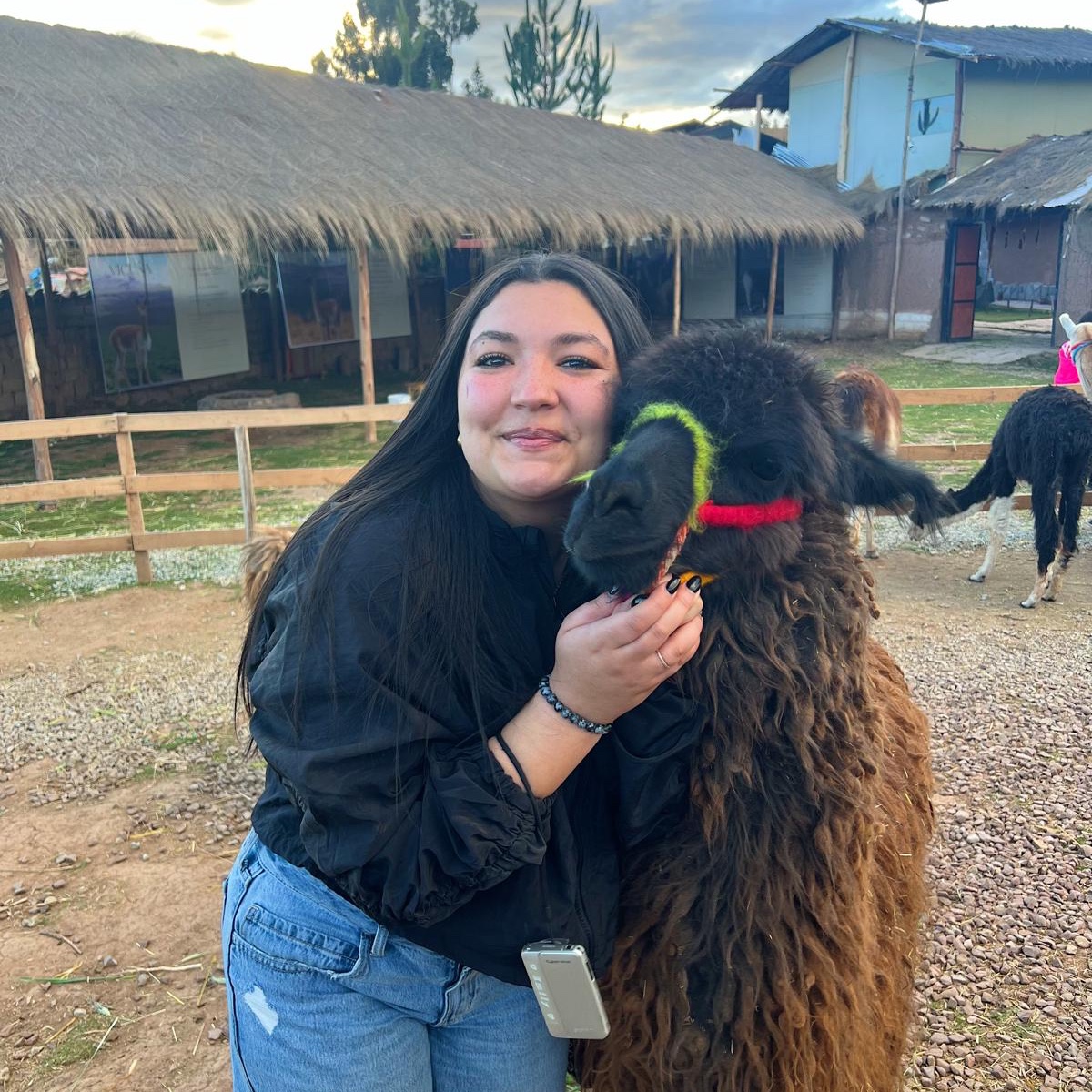
Emily, on one of their off days, spending time with the animals.
What made your experience in Peru extraordinary?
What made my experience abroad extraordinary was the ability to have firsthand experience in a culture where holistic medicine and science were able to work side by side. Physicians who prescribe teas and offer different birthing positions that are just on your back but also celebrate new pap smear techniques and studies with the same enthusiasm! I hope to one day be a physician just like the ones I shadowed!
How did the local program staff support you throughout your program?
The local staff were incredible! From our incredible drivers who would exchange songs with us on the way to the hospital in the morning to our mentors who were eager to answer any and all questions we had! Working alongside the providers at the community clinic was a beautiful experience where we got to compare the education system to become a doctor in both Peru and the United States and chatting with the obstetricians comparing birthing customs and contraceptive methods was an experience I will cherish forever!
What's one thing you wish you would have done differently during your time abroad?
One thing I wish I would have done differently is somehow had more energy to explore more at night with my fellow interns! It's always difficult to bond quickly with a group of people you have just met, but Cusco has so much to offer! If I could go back, I would try more restaurants, more dancing, and met more people!
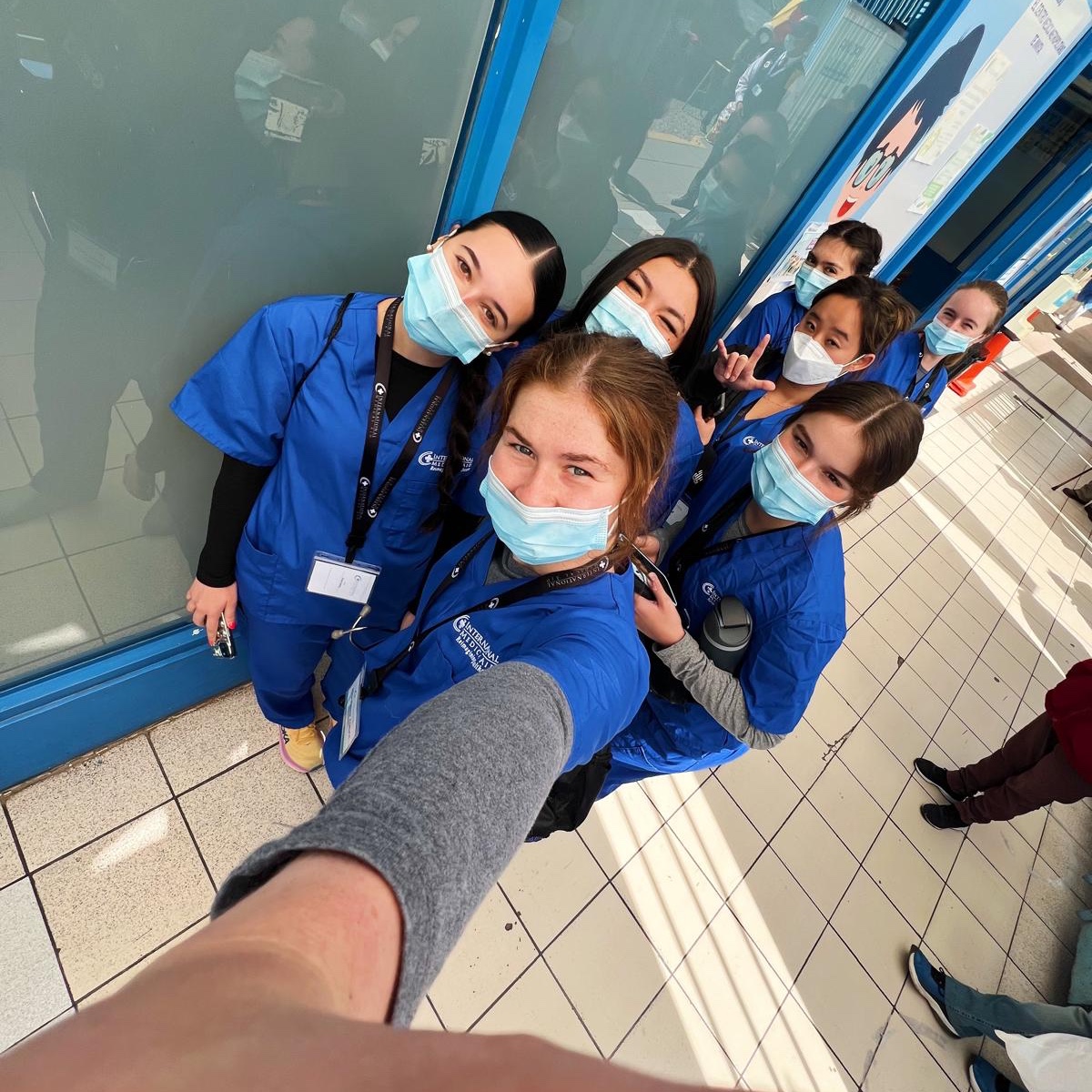
IMA participants in one of their clinics.
Describe what a typical day in your life abroad looked like.
We would wake up at our accommodations and have a delicious breakfast, and then we would get picked up by our most amazing and kindest driver to head to the hospital. There, we would receive our assignment for the day sit in for all the appointments with the doctors, and observe the day-to-day routines. We would sometimes assist with things like charting, vitals, and, of course, asking questions and discussing with the doctors the differences between American and Peruvian health systems and traditions, especially surrounding birth, since I spent all my days in the obstetrics unit. We would then come back to our accommodations and either go out on our own adventure, teach personal hygiene to local schools, or go to medical Spanish class!
What did you enjoy doing in your free time abroad?
During our free time, we would often go out exploring the local squares such as the Plaza de Armas, San Blas, San Pedro Market, grab ice cream, shop–anything we desired! We took any and all recommendations from our doctors, mentors, or anyone who gave us recommendations for restaurants or must-see spots, and we took full advantage of our free time!
What type of accommodation did you have? What did you like best about it?
We stayed in a sort of small boutique hotel that had the kindest staff and the best food! I personally had one roommate while others sometimes had two, so two to three interns per room and it was beautiful! It was right in the center of Cusco so we could walk to the Plaza de Armas, or the San Pedro Market, in under 15 minutes so it made for some amazing exploring!
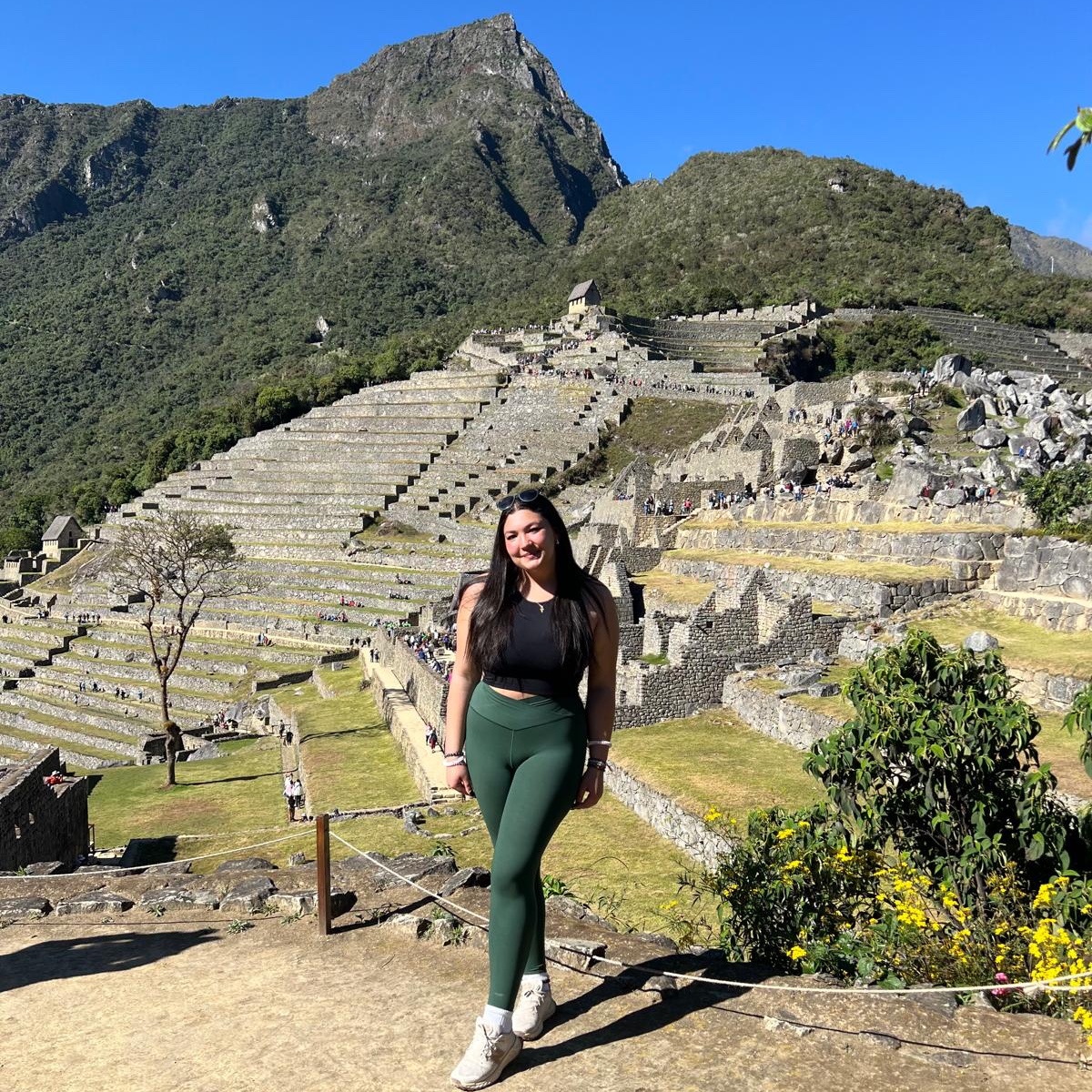
Emily explored Machu Picchu, the iconic Incan citadel located in the Andes Mountains of Peru.
What is one thing every future participant should know about your program before their program begins?
Although it is not a requirement to know Spanish to participate in the program, I feel as though participants should try their best to know the language before they go! I myself am fluent in Spanish so I was able to have educated conversations with the providers and ask complex questions! This way, I was able to get the most out of my experience form true connections with the doctors and compare American cultures and customs to Peruvian ones!
Would you recommend International Medical Aid (IMA)? Why?
I would absolutely recommend International Medical Aid to others. I have incredibly safe and cared for while abroad and the physicians that partner with IMA are beyond excited and willing to teach us interns anything we would like to learn! The other experiences of volunteering at the community clinic, teaching hygiene to local schools, hikes, tours, and Spanish tours really are what makes IMA stand out from other shadowing programs.
What do you feel the biggest benefit of traveling abroad?
The biggest benefit of traveling abroad is that everything is new! There is no pressure from anyone around you but the pressure you put on yourself to absorb as much of the information as you can! I'm allowed to ask a million questions because I know my time is limited, and the beauty is that people are usually more than happy to have a conversation!
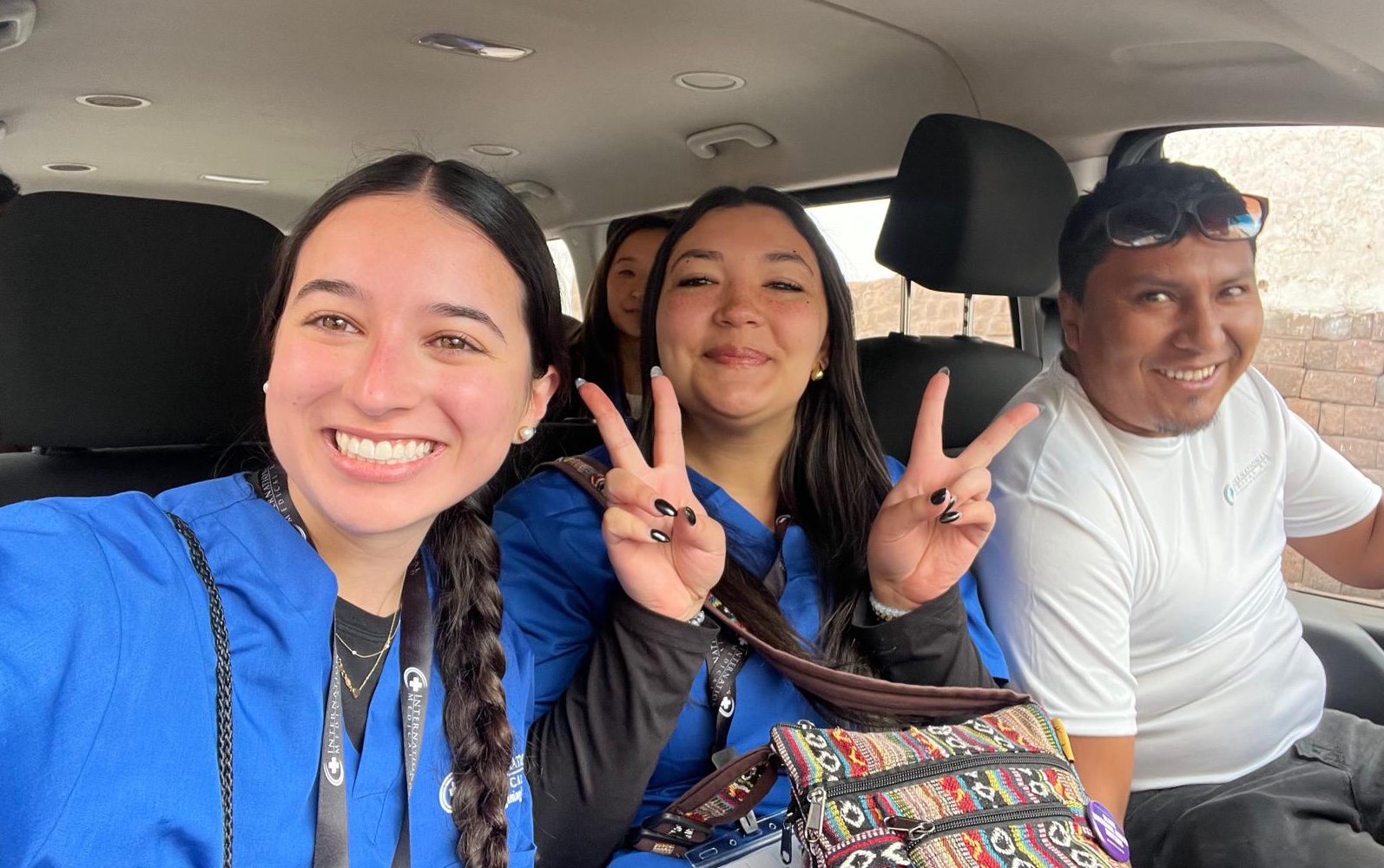
Emily with other IMA participants.
Now that you're home, how has your time abroad impacted your life?
My time abroad has completely changed my life. With everything I have been blessed to have learned in Cusco, everything I read I always find myself wanting to expand my knowledge on other countries and their customs relating to surgery rates, birthing customs, parenting values, and everything in between!
What does meaningful travel mean to you?
Meaningful travel to me means respecting and honoring the land and people that who have hosted you. Learning about the native peoples who call the land home and taking home more knowledge and exchanging experiences is what makes travel so beautiful and so universal! Providing a listening ear and respectful inquiries is what brings all the meaning.






